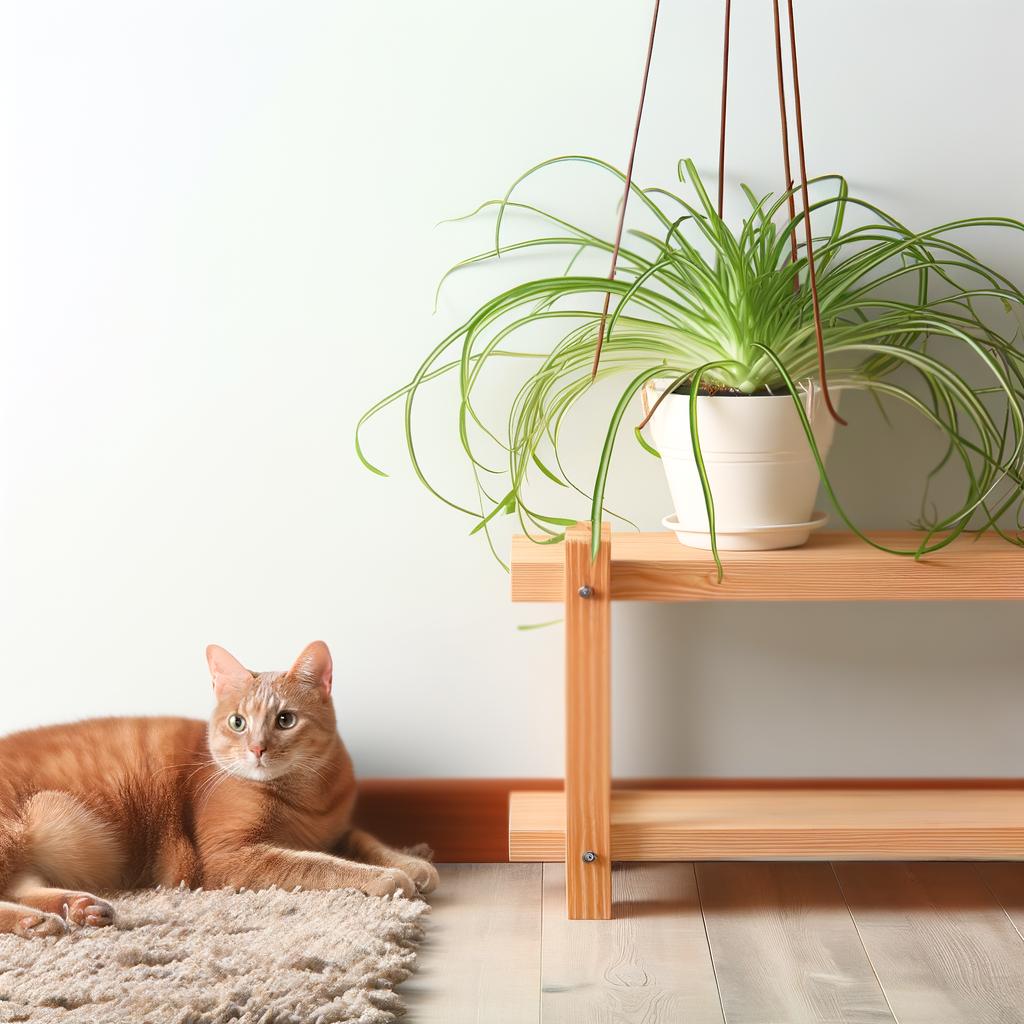Are Spider Plants Toxic to Cats?
Cat owners can breathe easy! Spider plants are completely non-toxic to cats. Learn about their safety and how to keep both your cat and plant happy.

Quick Answer
No, spider plants (Chlorophytum comosum) are not toxic to cats. However, this doesn't mean you should encourage your cat to eat them. Let's dive into the details every pet parent needs to know.
Key Points:
- • Spider plants are officially listed as non-toxic by the ASPCA
- • Cats may still experience mild gastrointestinal upset if they eat large amounts
- • The dangling spiderettes can be irresistible to cats
- • Prevention strategies can help protect both your cat and plant
Expert Opinions
Official Sources:
- • The American Society for the Prevention of Cruelty to Animals (ASPCA) officially lists spider plants as non-toxic to cats
- • Veterinarians generally agree that spider plants pose no serious threat to feline health
- • Pet Poison Helpline confirms spider plants are safe for cats
While spider plants are considered safe, it's important to understand that "non-toxic" doesn't mean "safe to eat in large quantities." Cats may still experience mild digestive upset if they consume significant amounts of the plant.
What Happens If Your Cat Eats a Spider Plant?
While not toxic, ingestion may cause mild symptoms that are typically short-lived:
Possible Effects:
- 1. Mild gastrointestinal upset (temporary vomiting or diarrhea)
- 2. Short-term lethargy
- 3. Increased interest in the plant
- 4. Mild drooling
These effects are typically mild and short-lived. Most cats recover quickly without any veterinary intervention. However, if symptoms persist or worsen, contact your veterinarian immediately.
Why Cats Love Spider Plants
Playful Temptation
Those dangling "spiderettes" are like nature's cat toys, swinging and moving with air currents.
Mild Hallucinogenic Effect
Similar to catnip, spider plants may induce a slight "high" in some cats.
Texture Appeal
The long, thin leaves can be satisfying to chew and play with.
Natural Instinct
Cats may be drawn to plants to aid digestion or fulfill nutritional needs.
Creating Harmony: Cats and Spider Plants Under One Roof
For Your Feline Friend
- • Provide cat-specific plants like cat grass or catnip
- • Ensure plenty of interactive toys to redirect attention
- • Use positive reinforcement to discourage plant chewing
- • Consider providing cat-safe greens or a small patch of grass
For Your Spider Plant
- • Opt for hanging planters or high shelves
- • Use pebbles or pine cones around the plant base to deter digging
- • Apply pet-safe deterrent sprays on leaves (use sparingly and test first)
- • Create a "plant sanctuary" in a room your cat doesn't frequent
Health Benefits: Why Spider Plants Are Worth the Effort
Air Purification
NASA studies show spider plants effectively remove indoor air pollutants like formaldehyde and xylene.
Low Maintenance
Perfect for busy pet parents who want greenery without the fuss.
Humidity Boost
Can increase indoor humidity, beneficial for both cats and humans.
Aesthetic Appeal
Adds a touch of nature and tranquility to your home.
Learn more about the benefits of spider plants and how they can improve your home environment.
When to Consult Your Vet
While spider plants are generally safe, contact your veterinarian if you notice:
- • Prolonged or severe vomiting or diarrhea
- • Significant behavior changes
- • Loss of appetite lasting more than 24 hours
- • Any signs of distress or discomfort
- • Difficulty breathing or excessive drooling
It's always better to be safe than sorry. When in doubt, consult with your veterinarian about any plant-related concerns.
Real-Life Experience: A Cat Parent's Perspective
Many cat owners report their felines showing intense interest in spider plants. One Reddit user shared: "Our cat is obsessed with our spider plant. She hasn't gotten sick from it, but we still try to keep her away to protect the plant!"
This common experience highlights the importance of balancing your cat's curiosity with plant protection strategies. Most cat owners find that with proper placement and supervision, both their cats and spider plants can coexist happily.
Conclusion: The Verdict on Spider Plants and Cats
Spider plants offer a rare win-win for cat owners: a beautiful, air-purifying houseplant that's safe for curious felines. By understanding your cat's behavior and implementing simple precautions, you can create a harmonious environment that satisfies both your green thumb and your cat's natural instincts.
Remember: Always supervise new interactions between your cat and houseplants. When in doubt, consult with your veterinarian about any plant-related concerns.
With this guide, you're well-equipped to enjoy the beauty of spider plants while keeping your feline friend safe and happy!